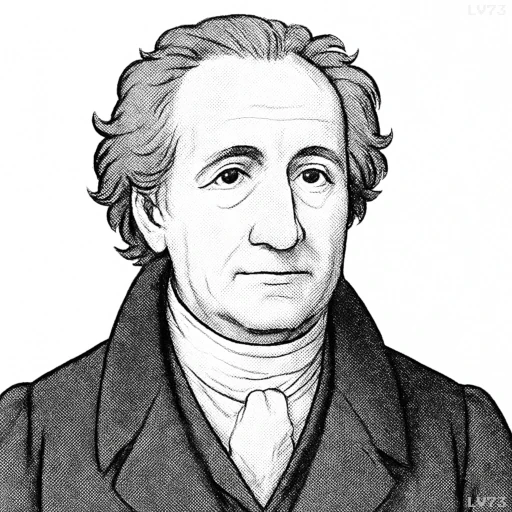“In nature we never see anything isolated, but everything in connection with something else which is before it, beside it, under it and over it.”

- August 28, 1749 – March 22, 1832
- German
- Poet, playwright, novelist, philosopher, politician
table of contents
Quote
“In nature we never see anything isolated, but everything in connection with something else which is before it, beside it, under it and over it.”
Explanation
Goethe emphasizes the interconnectedness of all things in nature. Nothing exists in isolation; everything is part of a larger system and connected to other elements in multiple ways. This view suggests that to fully understand any aspect of nature, we must consider its relationship to other elements, as they all influence and support each other. Whether it’s the relationship between plants and animals, the interaction of ecosystems, or the balance of forces in nature, everything is part of a larger, intricate web. This interconnectedness highlights the complexity of the natural world and the need for holistic thinking in understanding its systems.
Historically, this idea aligns with Goethe’s belief in the unity of nature. During the Romantic period, there was a growing appreciation for nature as a living, dynamic system rather than something to be understood solely through dissection or separation. Goethe himself was deeply interested in the organic unity of life and believed that understanding nature required seeing connections and relationships between its parts, rather than treating each element as an isolated entity.
In modern contexts, this idea is central to ecology, systems thinking, and holistic approaches to problem-solving. In our interconnected world, many challenges—whether environmental, social, or economic—cannot be solved by focusing on individual issues in isolation. Instead, we need to consider how different factors influence one another and how solutions in one area can have ripple effects in others. For example, addressing climate change requires understanding the connections between ecosystems, human behavior, economic systems, and technological advances.
Goethe’s words remind us that everything in nature, and in life, is interconnected. To truly understand or solve any issue, we must look beyond isolated elements and consider the broader relationships and contexts in which they exist. This perspective encourages a more integrative and collaborative approach to understanding the world around us.
Would you like to share your impressions or related stories about this quote in the comments section?




